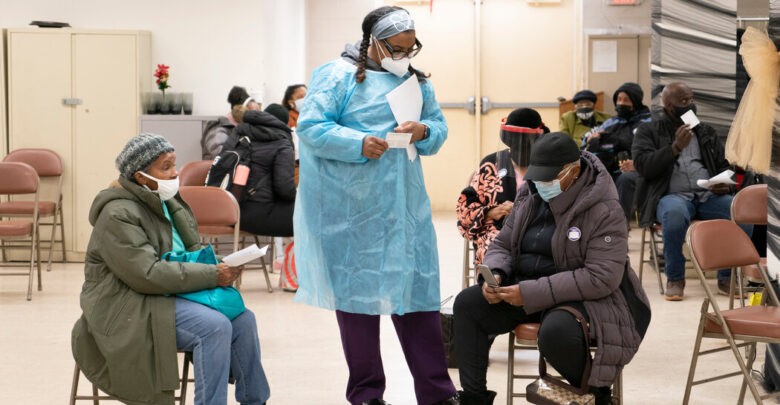J. & J. recipients may find boosters from other brands more helpful, says one study

People who received a Johnson & Johnson coronavirus vaccine may be better off with a booster shot from Moderna or Pfizer-BioNTech, according to preliminary data from a federal clinical study published Wednesday.
That finding, along with a mixed review of Johnson & Johnson's case for the Food and Drug Administration's approval of its booster, could lead to a heated debate over how and when to offer additional syringes to the 15 million Americans who did this to be received the single-dose vaccination.
The agency's panel of vaccine advisors will meet on Thursday and Friday to vote on whether the agency is recommended to allow Moderna and Johnson & Johnson to offer booster injections.
Despite questions about the strength of Johnson & Johnson's boosters raised by the new data, some experts assumed the agency would approve the vaccinations anyway, as the one-shot vaccine is less effective than the mRNA vaccines made with it two cans from Moderna and Pfizer-BioNTech. And the general public may also expect the approvals as the Biden government seeks boosters of all brands.
After the agency approved a Pfizer-BioNTech booster last month, "the die is cast," said John Moore, virologist at Weill Cornell Medicine.
Pfizer and Moderna vaccines are by far the most widely used in the United States, with more than 170 million people in the United States being fully vaccinated with either one or the other vaccine. When Johnson & Johnson was approved in February, public health professionals were eager to use the “one-time” option, especially in communities with poor access to health care. But the shot's popularity collapsed when the F.D.A. later paused its use to study rare cases of blood clotting.
For those who received the Johnson & Johnson vaccine, the timing of a booster approval – any brand – is still uncertain. The F.D.A. The panel won't vote until Friday on whether the agency should approve a second dose of the Johnson & Johnson vaccine, a scenario the Centers for Disease Control and Prevention's own vaccine advisory committee will discuss next week. If both agencies believe an additional dose should be offered, people could see them as early as next week.
Whether the F.D.A. could allow the mix-and-match approach, and how, is unclear. The strategy will be discussed in the agency committee meeting on Friday, but there will be no vote. Eventually, if regulators believe there is enough scientific support for the approach, they would likely need to update the registration language of the Moderna and Pfizer-BioNTech vaccines to allow their use in people who originally received Johnson & Johnson.
In a study by the National Institutes of Health, researchers organized nine groups of around 50 people each. Each group received one of the three approved vaccines followed by a booster dose. In three groups, volunteers received the same booster vaccine. With the other six they switched to a different brand.
The researchers found that the antibody levels of those who received a Johnson & Johnson injection followed by a Moderna booster rose 76-fold within 15 days, while those who received another Johnson & Johnson dose did the same Only a fourfold increase during the period. A booster dose from Pfizer-BioNTech increased antibody levels 35-fold in Johnson & Johnson recipients.
The authors cautioned about the small size of the study, noting that they did not follow the volunteers long enough to detect any rare side effects.
Sharon LaFraniere contributed the coverage from Washington.



